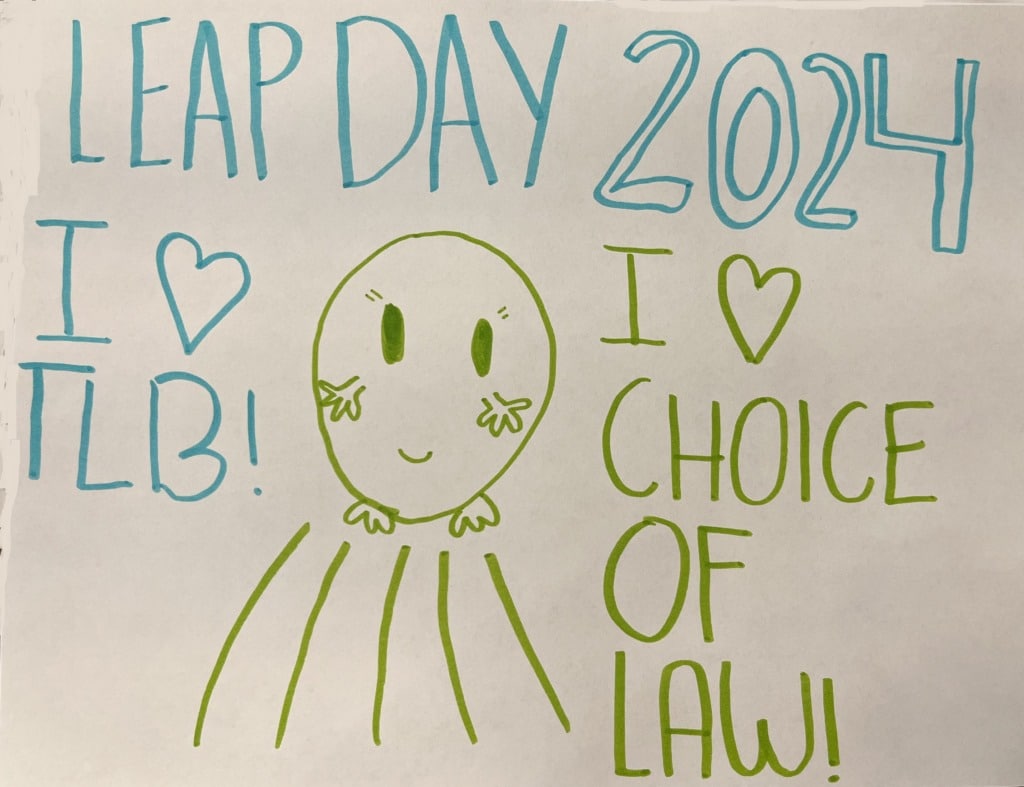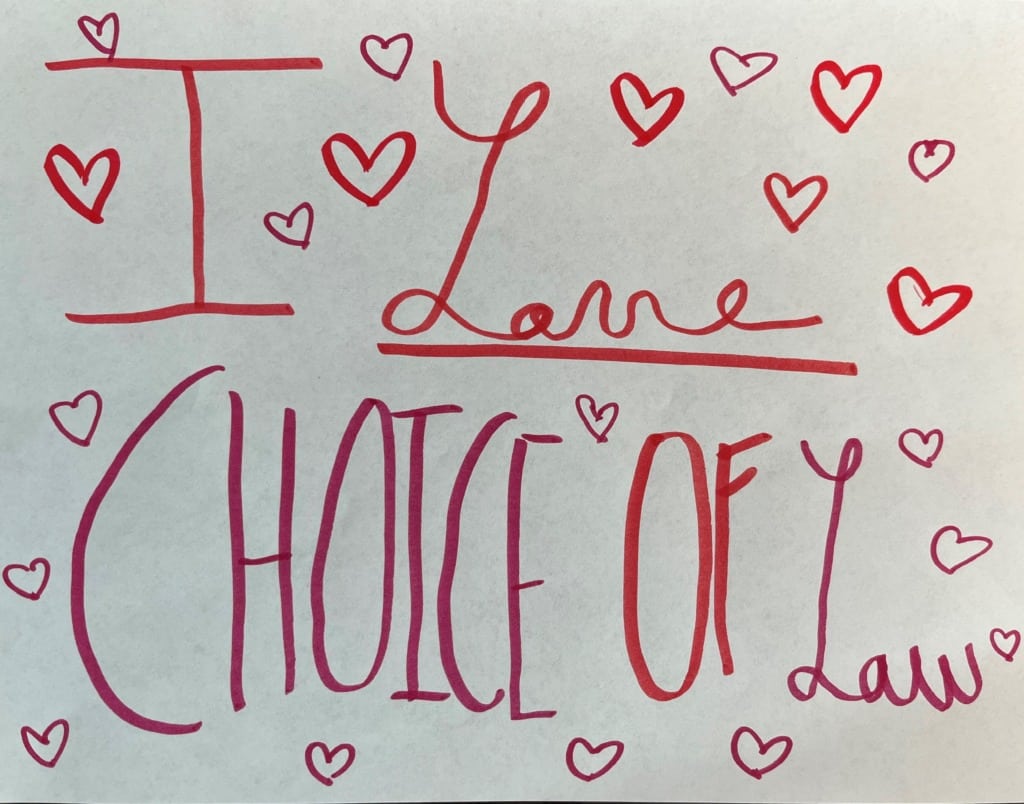Recent Developments Concerning the Hague Judgments Convention and COCA
Although the United States signed Hague Convention on Choice of Court Agreements (COCA) in 2009, it has yet to ratify it. In this post, I report on some recent developments that offer a basis for (cautious) optimism that the United States may soon take the necessary steps to ratify both COCA and the Hague Judgments…
Continue ReadingChinese Judgments and Due Process: Another New York Decision
In the United States, the recognition and enforcement of foreign judgments are generally governed by state law. Thirty-eight states and the District of Columbia have adopted either the 1962 Uniform Foreign Money Judgments Recognition Act or the updated 2005 Uniform Foreign Country Money Judgments Recognition Act. (In the remaining twelve states, common law governs.) Both…
Continue ReadingChoice of Law in the American Courts in 2023
The thirty-seventh annual survey on choice of law in the American courts is now available on SSRN. The survey covers significant cases decided in 2023 on choice of law, party autonomy, extraterritoriality, international human rights, foreign sovereign immunity, adjudicative jurisdiction, and the recognition and enforcement of foreign judgments. So, on this leap day, we thought…
Continue ReadingDomestic Litigation and Compensation to Ukrainian Victims of Russian Aggression
Many proposals to compensate Ukrainian victims of Russian aggression do not directly involve domestic courts, in part because foreign sovereign immunity poses significant obstacles to such litigation. There are, however, important cases against Russia currently pending in Ukrainian courts. These cases were the subject of a recent session held in Lviv, Ukraine, as part of…
Continue ReadingMDL-ing Transnational Litigation
What happens when the tax authority of the Kingdom of Denmark believes it was defrauded by more than 150 pension plans across the United States? A multidistrict litigation! This post briefly summarizes an unusual litigation in the Southern District of New York captioned In re SKAT Tax Refund Scheme Litigation. The post begins with a…
Continue ReadingInternational Custody Jurisdiction, Human Rights, and Legislative Change
The Court of Appeals of Washington State recently issued an unpublished opinion that will serve as a benchmark for parents who flee certain countries with their children, seeking safe harbor in the United States (In re AlHaidari (Fearing, CJ)). In re AlHaidari Bethany AlHaidari, a U.S. citizen, married Ghassan AlHaidari, a Saudi citizen, in Saudi…
Continue ReadingFederal Court in Nevada Allows Ethiopia Bribery Claims to Move Forward
In a fascinating decision, the District Court for the District of Nevada (Judge Richard Boulware) recently allowed civil RICO claims to proceed against a Nevada resident based on bribery in Ethiopia, while dismissing claims against Ethiopian government entities under the Foreign Sovereign Immunities Act (FSIA). Fremichael Ghebreyesus v. Federal Democratic Republic of Ethiopia not only…
Continue ReadingForeign-Country Judgments and Full Faith and Credit
Article IV, section 1 of the U.S. Constitution begins by stating: “Full Faith and Credit shall be given in each State to the public Acts, Records, and judicial Proceedings of every other State.” Congress has extended this principle to judgments from U.S. territories and possessions too, providing in the Full Faith and Credit Act that…
Continue ReadingEnforcing U.S. Securities Judgments Against Chinese Companies
Robin Hui Huang and Weixia Gu have an interesting paper up on SSRN about enforcing foreign securities judgments in China. In China’s Recognition and Enforcement of Foreign Securities Judgments Against Overseas-Listed Chinese Companies, they note that private securities litigation against Chinese companies in U.S. courts is increasing. But most Chinese companies listed in the United…
Continue ReadingChoice of Law in the American Courts in 2022
The thirty-sixth annual survey on choice of law in the American courts is now available on SSRN. The survey covers significant cases decided in 2022 on choice of law, party autonomy, extraterritoriality, international human rights, foreign sovereign immunity, foreign official immunity, the act of state doctrine, adjudicative jurisdiction, and the recognition and enforcement of foreign…
Continue Reading- « Previous
- 1
- 2
- 3
- 4
- Next »









